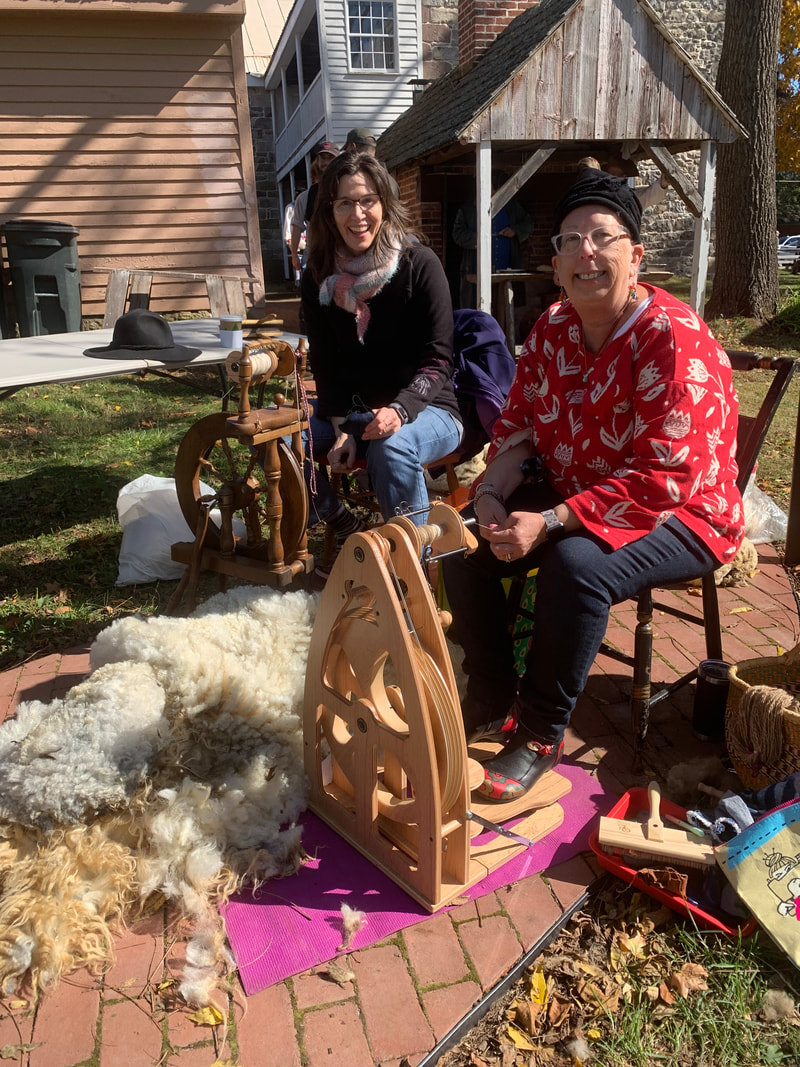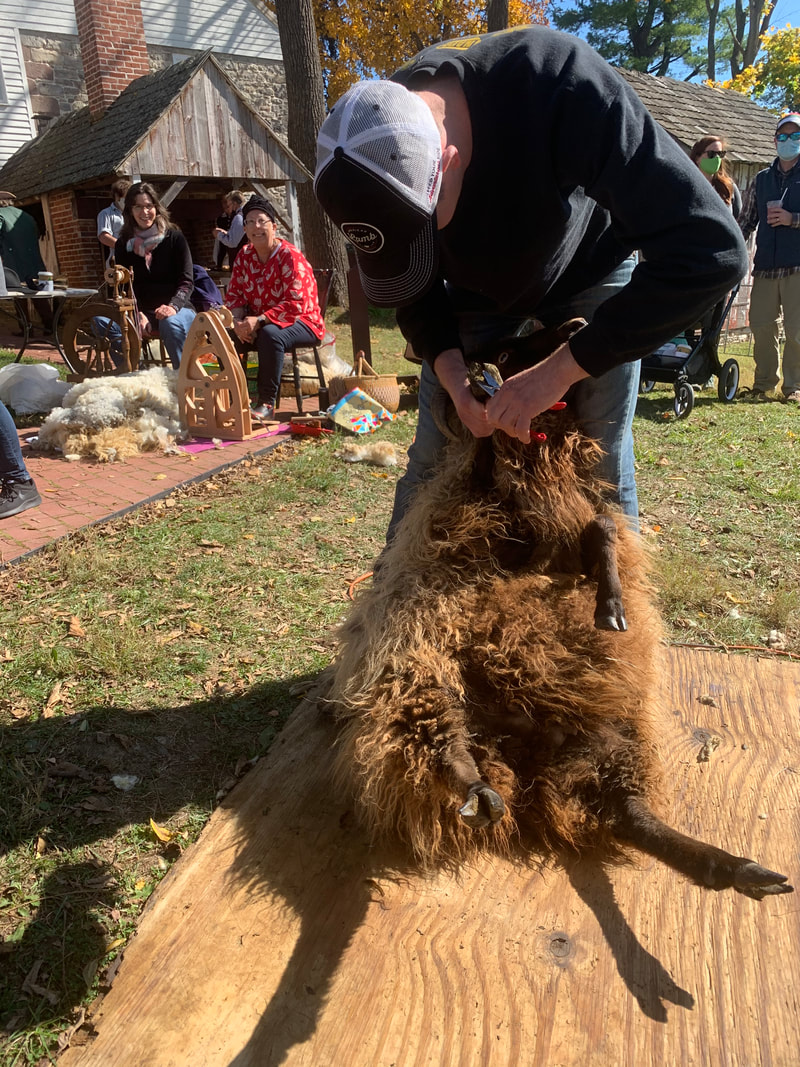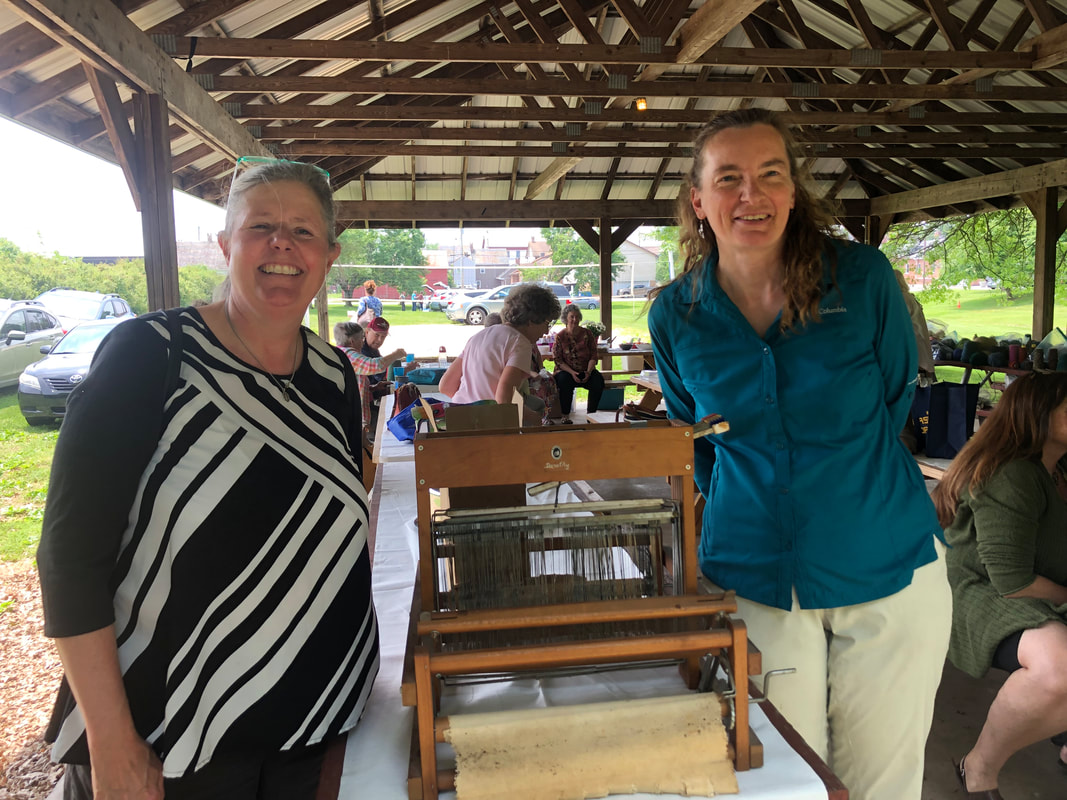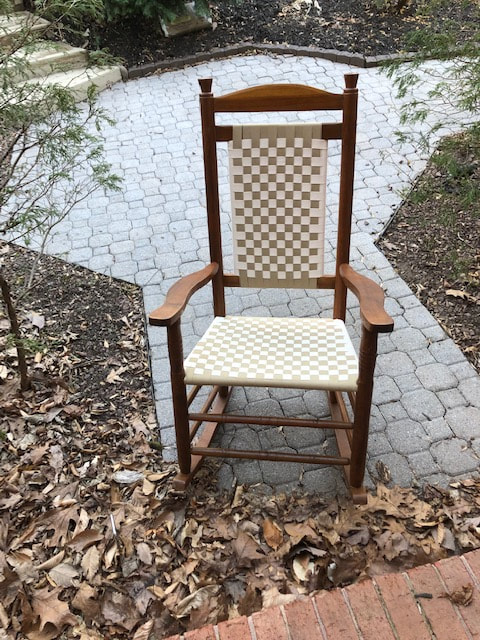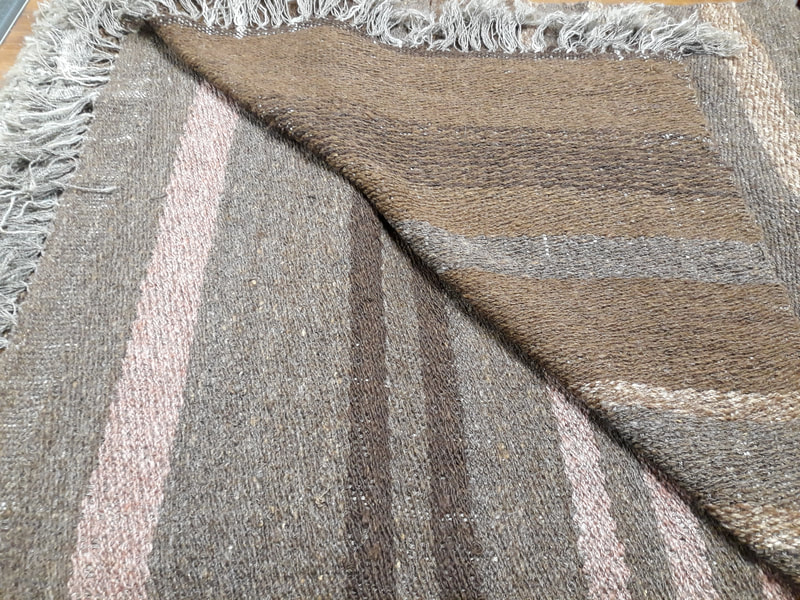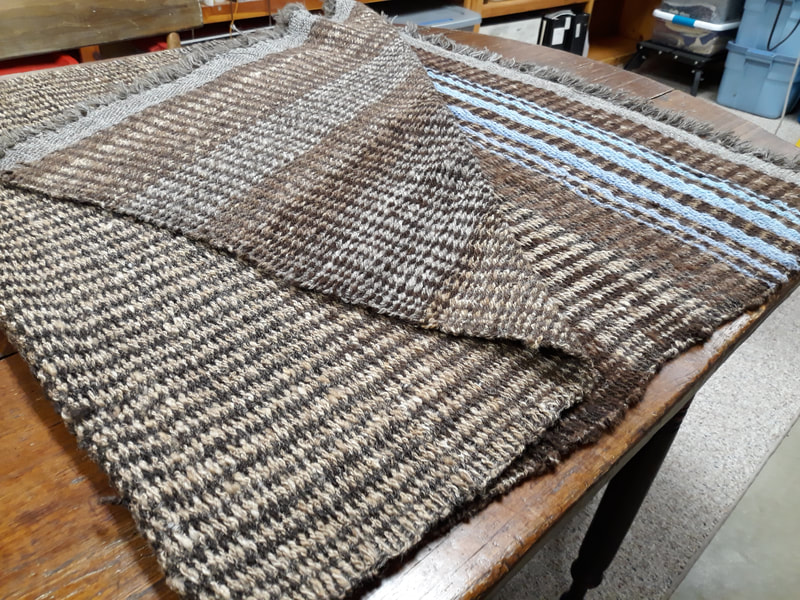|
Member Kelly Grotzinger sent a link to this article about an unusual antique spinnning wheel:
https://exquisitemachinery.wordpress.com/2020/12/05/jack/
1 Comment
Member Kris Peters sent a link to a video from the BBC Archive about Shetland shawls.
https://www.facebook.com/BBCArchive/videos/2871609249523755 For those who don't want to do the math, 70 pounds in 1964 is about 1600 current USD, and 3 shillings in 1964 is about 3.50 current USD. (assuming I have calculated correctly) Member Shaun Levi sent me this article to share on knitting for calm in our current time of stress. It reminded me of a book I borrowed years ago from the library called Knitting Yarns: Writers on Knitting by Ann Hood. Both speak about how knitting (and crafting in general) can help us through times of stress and grief, whether it is the death of a loved one or a global pandemic.
For me, weaving is my 'escape time' - I listen to an audiobook and weave and don't think about the world outside. Knitting keeps me calm while moving about in the world - when I am knitting out in public people often say something like 'you must have so much patience to be able to do that' and I tell them that the knitting GIVES me patience (especially when waiting at the eye dr. for over an hour). How does your crafting help you manage your stress? Laura Here we are - Shaun and Tara - at the Historic Dills Tavern taking part in the 105th Dillsburg Farmers Fair by providing a carding and spinning demonstration on Saturday, October 17. We were spinning fleece shorn that day. (We took our masks off to sneak in the photos. )
A message From Kelly Grotzinger, Co-President
This is not a note about staying safe and out of range of the pandemic, but about behavioral affect revealed during self-isolation--relating to weaving, of course. What clothes are you wearing day to day now that you do not go 'away' or 'out' except to hike around the yard or in the neighborhood or to the grocery store? Well....I have replaced jeans with yoga pants so that my posterior is not chaffed from so much time on a weaving bench. I have replaced hard sided shoes with fat rag wool socks, the better to manipulate treadles. So that my black wool work suit jackets do not gather dust in my closet and so that I might stay warmer in my studio, I pair them with the yoga pants, the rag wool socks, and some sort of t-shirt. I may throw a hand-woven scarf/shawl around too. Now, lest this combination not be stylish enough for you, know that I add a range of southwest style earrings and bracelets. Thank heavens that I don't need to add a mask to this 'look' in order to weave! So, although we have not had Guild time to do show and share of our hand woven projects, I wanted you to know how I have adopted an alternative personal style to accommodate my fiber focus since self-isolating. You? By Mary Parsons
There is an old African Proverb .... It takes a village to raise a child Well Fellow Toastmasters and guests, I think: It takes a village to Mentor a new Weaver! Let me explain. Several years ago, I was looking for a new hobby to stay active during the long, cold, Pennsylvania winter days. I was talking to my sister in law Karen and she suggested weaving! I was intrigued by her description– creative use of color and texture and pattern. Hands on, active, required planning and a little bit of math both a good fit for an engineer like me. Your weaving could be used in a lot of ways: rugs, scarves, handbags, towels – in fact anyplace fabric is used. Karen was my villager One. She suggested I read a this book called “Learning to Weave” and and to look for weaving workshops in my area. By Kelly Grotzinger My fiber holdings, that is, my stash, was acquired...
I was pointedly reminded of the following this past month: Mary Parsons (left) and Laura Campbell (right) are two of our Guild members honored to receive donations from the Schulder family in memory of their mother, Patricia Schulder, a weaver from Harrisburg, Pennsylvania.
Rose Meagher recently completed this gorgeous weaving during a one-day workshop with Joyce Schamm (notable basket weaver from Westminster, MD).
By Kelly Grotzinger
We are all mortal. We all have stash. We don't all have family or friends who are as into fiber as we. At the March meeting of CPGH I showed three twill lap blankets, the weft for which comprised 200 +/- skeins of hand spun wool/llama. Yes, a lot of handspun yarn. The blankets were not special because of the weaving, the weaver (ahem), or the use of the handspun, but because the yarn came from the dispersal via public auction of the estate of Cynthia Spayd outside of Hamburg PA. Ms Spayd died unexpectedly at 62 in October 2017. On the coldest day in January 2018 (0 degrees F at 8 AM at an open air on-site auction), the lifetime contents of books, fleece, cone and skein yarn, thread, tape and floor looms, spinning wheels, carders, et cetera were sold. There were no small number of containers, tubs and cardboard boxes of fleece, handspun wool, and weaving thread. And, there evidently was no family to share her passions. Obviously I was fortunate to purchase handspun, thread, yarn, and even some fleece. No I did not know Ms. Spayd; I had no knowledge of her interest in fiber; I went to the sale following the lure of weaving yarn and books. However, I wove the blankets to honor her and her fiber 'legacy' and to acknowledge our shared mortality, stash, and commitment to fiber and weaving. |
